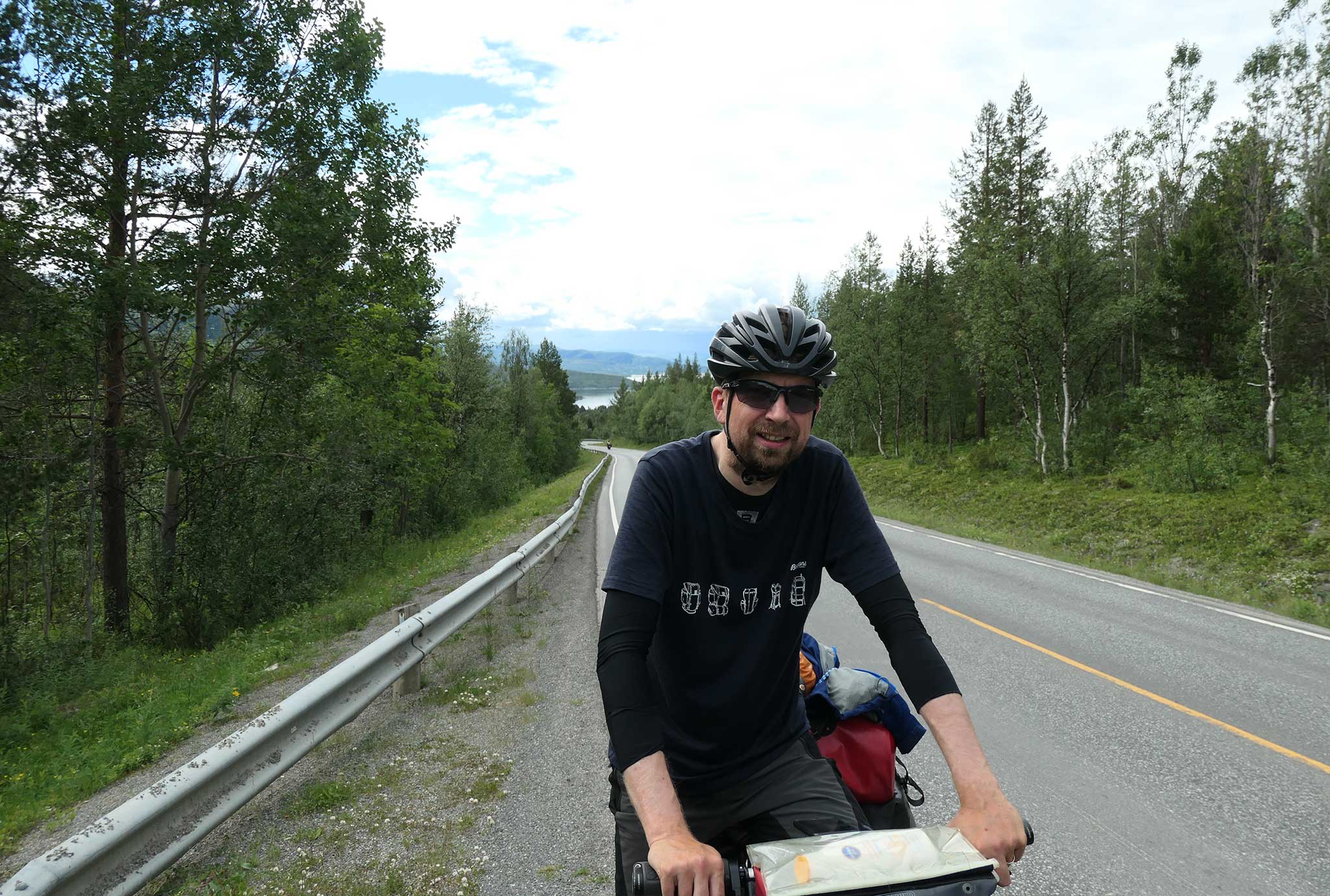Faces of the LIB: Markus Reinhardt
“But back then I wasn’t a computer nerd at all – I’m only one now.”
 IT administrator Markus Reinhardt enjoys the landscape from the saddle of a bicycle, for example on a tour through Finland from Helsinki to the North Cape. © private
IT administrator Markus Reinhardt enjoys the landscape from the saddle of a bicycle, for example on a tour through Finland from Helsinki to the North Cape. © private
A visit from Markus Reinhardt is a source of joy. Because he is there with help and advice when the notebook goes on strike. In fact, the challenges of the LIB IT administrator lie elsewhere: professionally in the expansion of WLAN to the museum and in protective measures for the IT network; privately on the saddle of his bike, for example on the way to the North Cape.
What is special for you about working in a research institution like the LIB?
Research is subject to long-term processes – unlike in many business enterprises, where many things have to happen quickly. However, I don’t have that many points of contact with the research projects. The technology used by the biologists for research is cool to see, but in the end it doesn’t matter to me professionally. We talk, but there is no format for a technical exchange yet. The consultation is more about the hardware.
What interested you in the position of system administrator at the LIB?
When I applied, it was clear that this was a migration project in IT, so away from the university to the LIB. That was the trigger. In addition, there was the merger of two locations and a rollout of hardware. That doesn’t happen often. I was able to contribute many ideas here; the process is also not yet complete. Now we have to see that we offer everyone enough space in the storage we have acquired. The planned new museum with digital offerings in the exhibition could also become exciting, but that’s still taking time.
How would you describe your workplace to a friend?
I work at a research museum with appropriate exhibition space and infinitely large collections, with fish in alcohol and insects in the dry collection.
What does nature mean to you personally?
My wife and I do a lot of cycling and enjoy nature where there are not so many cars and there is still a lot of countryside. In the summer we did a cycling tour through Finland from Helsinki to the North Cape. Otherwise, I enjoy the advantages of the big city.
What would you have become if IT hadn’t worked out?
Biologist. At school, biology-mathematics was my combi. I also applied for biology and got a place at university. But it was too far away from home and I started studying computer science nearby. But back then I wasn’t a computer nerd at all – I’m not one until today.
What are the highlights of your daily work? What are the challenges?
It depends on what’s at hand. When a topic is through, like with the laptops that came into the offices, and you can tick a box there, that’s good. Now we are in the process of setting up WLAN access. At the beginning of next year, LIB staff will also have WLAN access in the exhibition, but not (yet) as visitors. Apart from that, IT security is a big topic at the moment. Here we are primarily active in prevention.
What do you want people to associate with the LIB in ten years’ time?
That something positive will come out of the research, that the efforts that are being made will lead to the goal and that we will bring about a turnaround in the biodiversity crisis.
What are you doing yourself in terms of nature conservation?
One makes an effort. I consciously fly less and we try to limit meat and milk consumption. And I cycle a lot – also to work. In the summer I took part in the bicycle challenge and helped to encourage colleagues to cycle.
What is the biggest challenge for you in the field of environmental protection?
To get as many people as possible involved in the environmental movement and to get them to see the benefits.
Which area at LIB is particularly close to your heart?
I like everyone equally!
Markus Reinhardt has been an LIB staff member from the very beginning. Since 1.7.21 he has been employed as a system administrator and head of IT at LIB in Hamburg. After studying computer science in Dresden, he first worked as a system administrator in Pasewalk (Mecklenburg-Vorpommern) before holding the same position for ten years at etracker, a Hamburg-based tracking specialist for web analytics.


